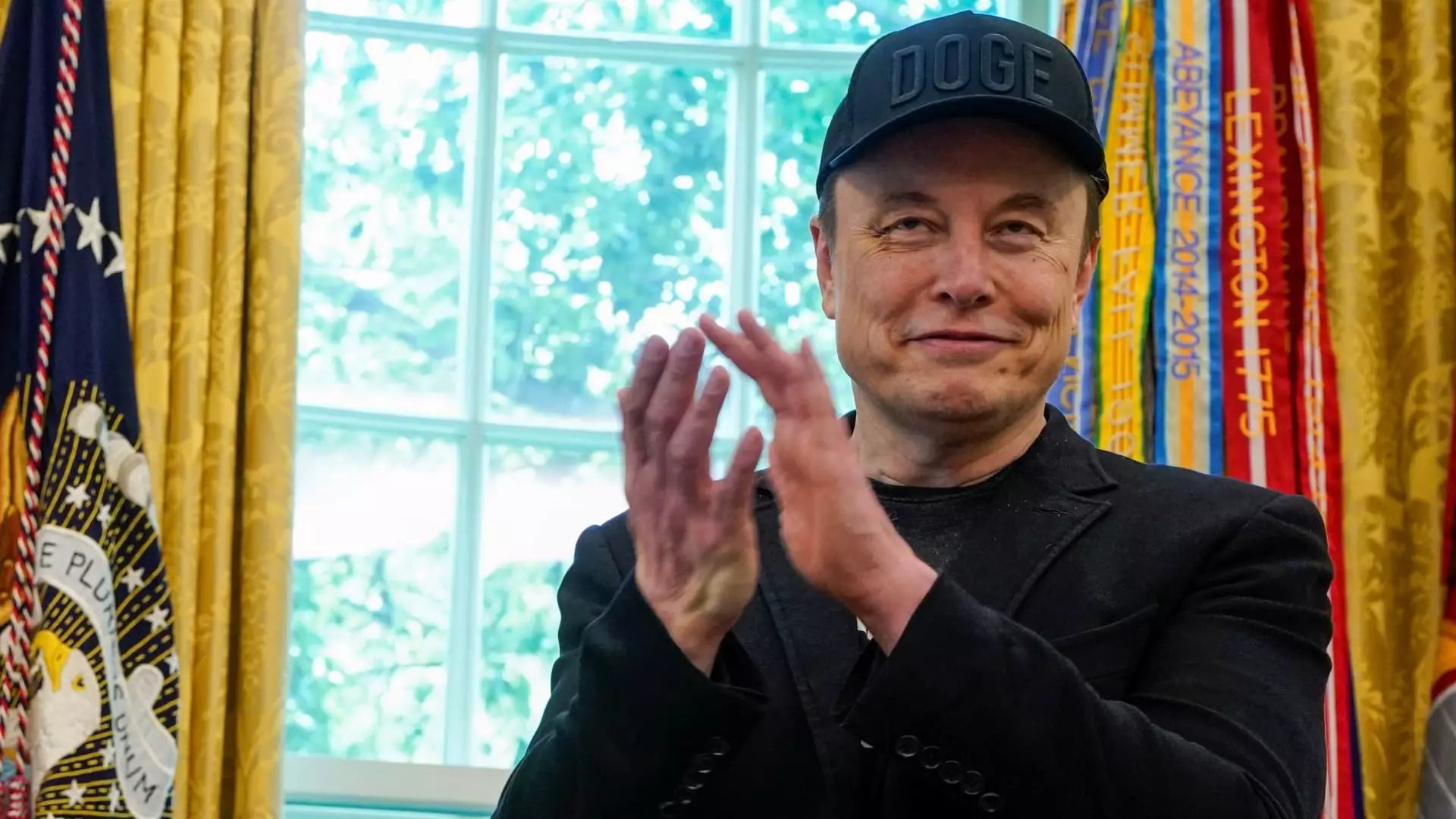Elon Musk’s declaration of forming the “America Party” might seem like a bold step toward reshaping American politics, but beneath this seemingly reformative façade lies a more calculated maneuver. By promising to “give Americans back their freedom,” Musk taps into the deep-seated frustration prevalent among disenfranchised voters. Yet, the reality is that this new party appears to be less about fostering genuine democratic ideals and more about consolidating power in the hands of a few influential figures. Musk’s emphasis on just a handful of Senate seats and House districts signals an opportunistic approach, with the potential to disrupt the delicate balance of the current system rather than enhance it.
The Illusion of Grassroots Support
While Musk touts overwhelming public support—claiming a 2-to-1 preference for a new political entity—the legitimacy of this assertion remains sketchy. Social media polls are notoriously unscientific, and Musk’s own influence likely sways the outcome. Moreover, the notion that a tiny, strategically targeted faction could wield decisive legislative power over contentious laws is overly simplistic and somewhat reckless. This strategy risks marginalizing existing political frameworks, raising concerns about the health of democratic deliberation. Supposedly, the “America Party” aims to operate independently yet collaborate with both parties—a contradiction that underscores its unpredictable, perhaps even destabilizing potential.
Power Plays and Personal Agendas
Musk’s financial outlay during the 2024 election—over $280 million—makes clear that his political ambitions are intertwined with personal influence rather than purely civic motives. His support for Trump and other Republicans hints at a desire to reshape a Republican landscape that he perceives as falling short of his vision. However, his recent public feud with Trump—once an ally—reveals Musk’s willingness to pivot based on personal grievances or strategic calculations. This fluid loyalty suggests that the birth of the “America Party” may ultimately serve Musk’s own interests rather than the broader needs of the American populace.
A Center-Left Alternative in a Polarized Climate
From a center-leaning liberal perspective, Musk’s political resurrection raises concerns about the perpetuation of elitism and power consolidation. While striving for reform, Musk’s approach seems more akin to a corporate takeover than a grassroots movement. Real meaningful progress demands a commitment to equitable representation and policies grounded in compassion and social justice—not a narrow focus on legislative ‘deciders’ that could entrench existing inequalities. If anything, this move risks deepening the polarization, creating yet another elite-driven spectacle rather than fostering inclusive dialogue or systemic change.
The Direction Forward: From Charisma to Credibility
Ultimately, Musk’s “America Party” reflects a complex blend of personal ambition and ideological ambiguity. While it may promise freedom, what it primarily delivers is a reminder that political innovation often translates into power struggles cloaked in populist rhetoric. As citizens, we should scrutinize whether this development is a genuine effort to empower the people or merely a strategic platform for Musk and his allies to shape policy to their advantage. True progress will only emerge when such movements are driven by authentic grassroots participation rather than the ambitions of a few influential figures seeking to redefine the political landscape for their own benefit.


Leave a Reply